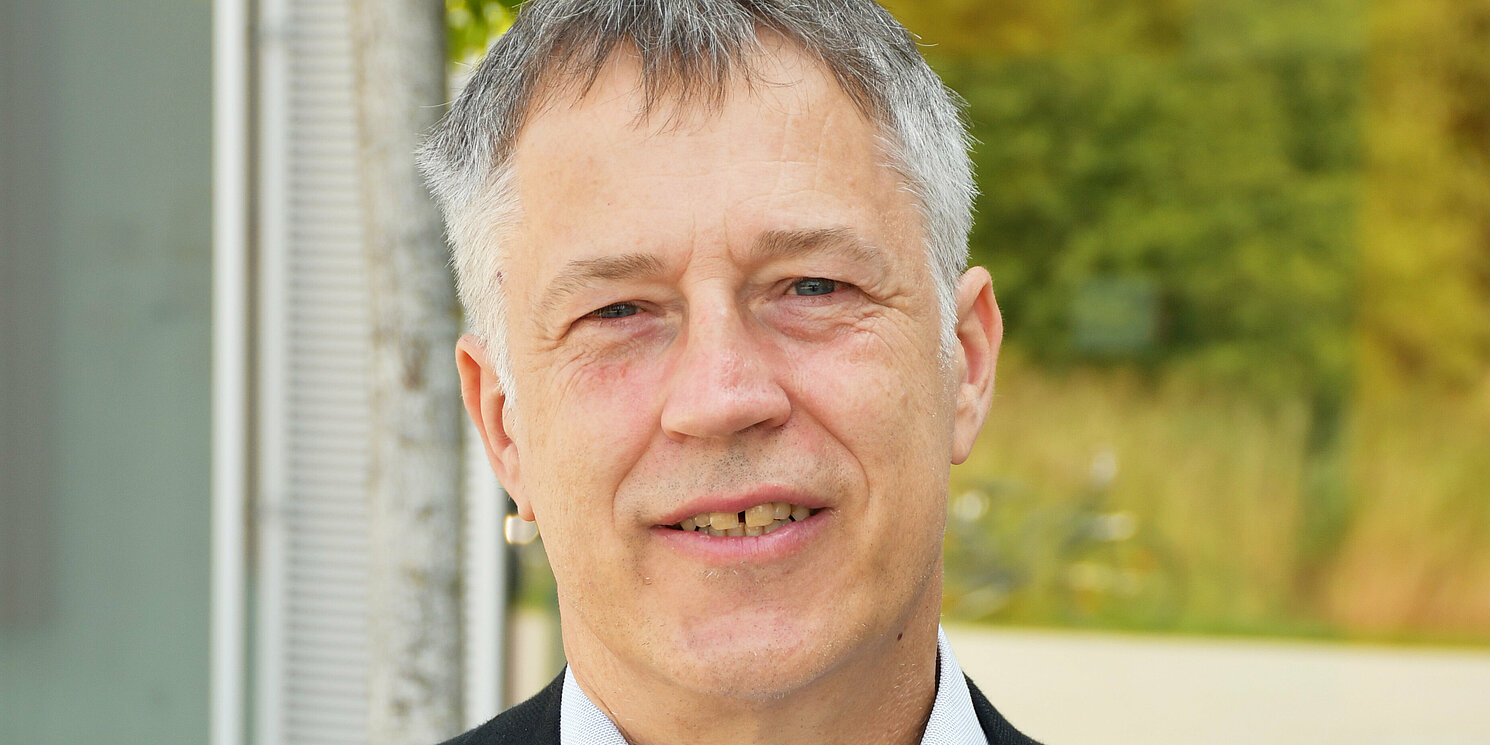Hello, Mr Weber. You will be giving a keynote speech on the topic of ‘AI and democracy’ at the Long Night of Democracy. What does that mean?
Prof. Weber: I will be talking about how digitalisation - especially the use of AI - is influencing democracy. One example of this is deep fakes, i.e. the ability to use AI to create fake images, texts and sounds and show people in situations that they have never experienced. This phenomenon is not new, but technological progress has taken it to a new level. The combination of AI and social media in particular harbours dangers for democracy, but it is not the technology itself that is the problem. Rather, it is the social and economic conditions that favour anti-democratic developments.
The panel discussion will focus on the topic of ‘How can we use social media for our democracy?’. Don't social media platforms tend to divide society?
Prof Weber: The problem lies not in the social media themselves, but in their use. Algorithms often amplify the information that corresponds to one's own preferences and thus promote polarisation. Parties on the fringes of the political spectrum have understood this more quickly and use social media specifically to spread emotional messages. While traditional parties often focus on factual arguments, the fringe parties tend to use simple slogans that appeal to the emotions. This strategy has proven to be very successful, especially with younger target groups.
Young people in particular spend a lot of time on social media and seem receptive to radical theories, which is also reflected in the recent election results in Thuringia and Saxony. Does the AfD control these platforms better than other parties?
Prof Weber: Yes, you could say that. Radical parties use social media more effectively by focussing on simple messages that are emotionally charged. However, it is not hopeless. One example is Kamala Harris' campaign in the USA, which has shown that you can also be successful with positive messages. It would be a strategy to focus more on what works well in this country too, instead of constantly spreading bad news.
How do you rate the influence of social media on the formation of political opinion? Can people trust the content?
Prof Weber: Social media can have a strong influence on the formation of political opinion. Many people get their information almost exclusively from social networks, where content is often filtered and personalised. This creates echo chambers in which people only see what confirms their own convictions. It becomes particularly dangerous when misinformation is amplified in such networks. What we have been preaching for decades is media literacy and diversity of information - not just getting information from one source. Events such as the Long Night of Democracy are essential to raise awareness of democratic processes. We need to regain trust in democracy, and this can be achieved through education and discourse. One major problem is the loss of trust in traditional institutions. However, I see hope here in supranational institutions such as the EU, which try to enforce the rule of law - be it through legal action against large corporations or by upholding human rights.
What can science and society do to return to fact-based discussions?
Prof Weber: This is one of the greatest challenges of our time. What we are seeing is a combination of many crises: climate change, geopolitical conflicts, the crisis of confidence in institutions. This linkage leads to a feeling of insecurity among many people. Radical parties capitalise on this feeling and offer simple solutions - that is tempting. Scientists need to enter into more dialogue with society and explain clearly what they do and why their knowledge is important. Unfortunately, this dialogue is often slow.
Social media is often a breeding ground for hate and cyberbullying. How do you assess criticism and attacks online?
Prof Weber: The issue is very serious. We have seen increasingly extreme cases in recent years, such as the case of an Austrian doctor who took her own life after being cyberbullied. The anonymity of the internet certainly plays a role in allowing people to act out with impunity. But it's not just anonymity. It is precisely where radicalisation tendencies are already present that misinformation catches on particularly quickly.
Is education the key to solving these problems?
Prof Weber: Education undoubtedly plays a central role. But it is not a panacea either. People with a higher level of education tend to be less susceptible to misinformation, but this does not protect them completely. It is important that we not only promote broader knowledge transfer, but also the ability to think critically and understand different perspectives.
In conclusion: Will your keynote speech be more academic or entertaining?
Prof Weber: I will try to find a balance. It's not about boring people with an academic lecture. The keynote speech should be entertaining, but also thought-provoking. Whether I succeed in this balancing act remains to be seen!
************
The Long Night of Democracy starts on Wednesday, 2 October 2024, at 6 p.m. in the auditorium of the Thon-Dittmer-Palais with a welcoming address by Lord Mayor Gertrud Maltz-Schwarzfischer. The keynote speech ‘AI and democracy’ will be held by Prof Dr Karsten Weber. The event will be moderated by Gustav Wabra, Deputy Director of the Adult Education Centre, and Luisa Haas, Stadtjugendring. Following Prof Weber's lecture, the panel will discuss the question: ‘How can we use social media for our democracy?’. Prof Weber, Lena Krebs (poetry slammer), Nando Petri (media coach and digital street worker) and other guests will take part in the discussion. After a break, the various workshops will start at 9 pm. The event is open to everyone and free of charge. At the entrance from 5.30 pm, participants can secure places in the workshops and the poetry slam.
